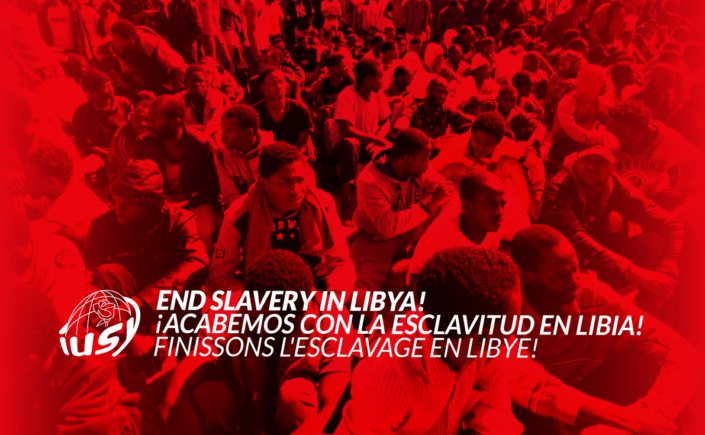It has been reported for years that those who have crossed the Mediterranean have shared stories about beatings, kidnapping and enslavement.
More recent allegations of migrants being sold into slavery in Libya have been surfacing since the International Organization for Migration first brought up the matter in April 2017.
In October, CNN discovered that sales of migrants, in particular youths from Niger and other sub-Saharan countries being sold to buyers for about $400 (£300) in Tripoli and about nine other undisclosed locations in Libya.
In the last few days, new reports have emerged that migrants trying to reach Europe have spoken of being held by smugglers and forced to work for little or no money.
Current United Nations estimates place the number of migrants in Libya around 700,000. The safety of all the migrants travelling through Libya and the preservation of freedom and human dignity is of the utmost importance to the International Union of Socialist Youth (IUSY).
As an international organization focused on the fight for freedom and social justice, we emphatically denounce the atrocious acts of slave trade taking place in Libya and strongly condemns the practice and its perpetrators.
We urge the government of Libya to take swift and decisive action to put an end to all sales of persons within its territory.
IUSY further calls on the government to take all necessary steps to ensure the safety of migrants in the Country and to provide facilities and resources that are needed for the humane treatment and processing of the migrants while they are within the borders of Libya.
IUSY further calls on the International community at large to take bold and persistent action to end the modern slavery that has been overlooked for some time now.
The protection of human life, freedom from slavery and forced servitude, and the preservation of human dignity, are rights germane to the duties of all Nations under international law and international institutions particular the United Nations must be seen to be taking swift measures to end these heinous actions in Libya and other countries alike.
An enhanced international cooperation is required to ensure the clampdown on human smugglers and traffickers and the enforcement of international law that guarantees an end to the atrocities associated with slavery and human trafficking.
We finally reiterate our call to the International community to find sustainable solutions through solidarity and development cooperation to address the key challenges confronting the developing world which invariably account for the high proportions of migration from these countries travelling through unapproved routes while increasing the opportunities for legal migration.

